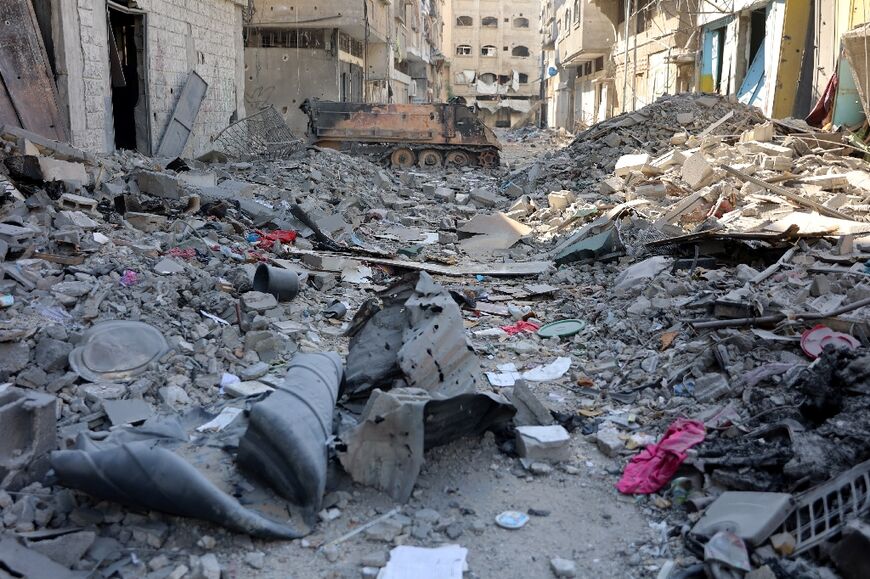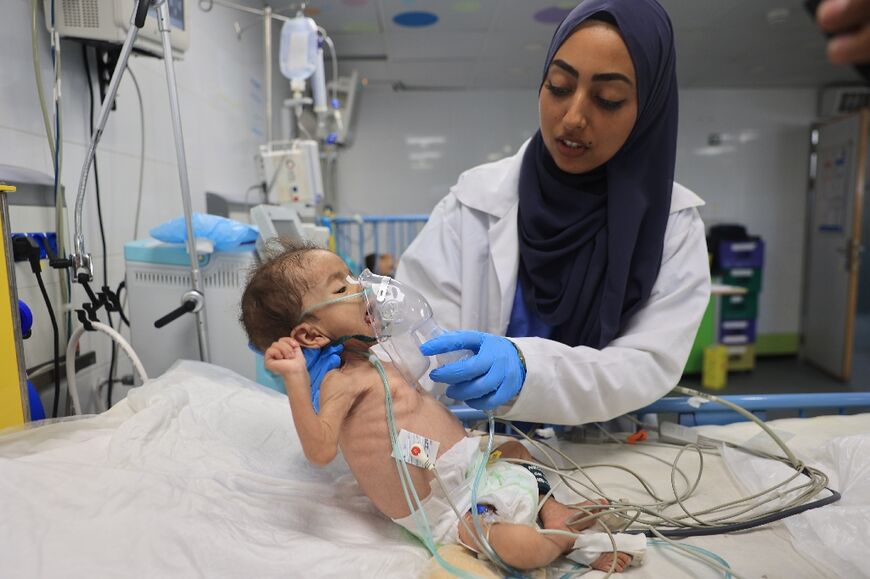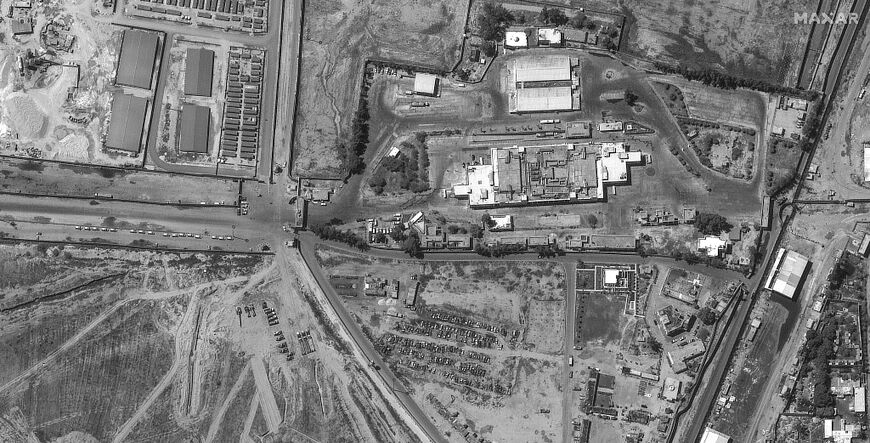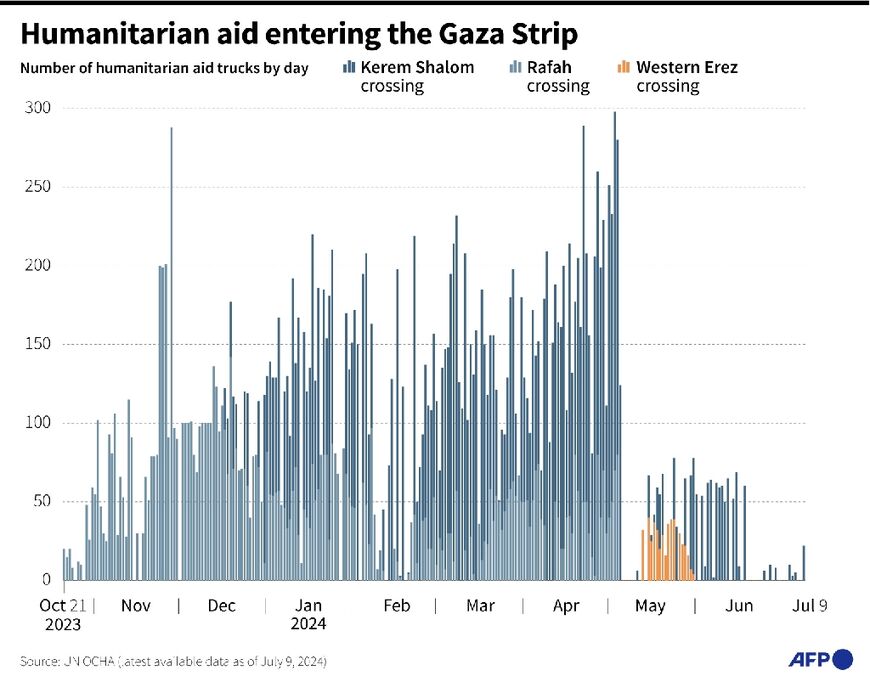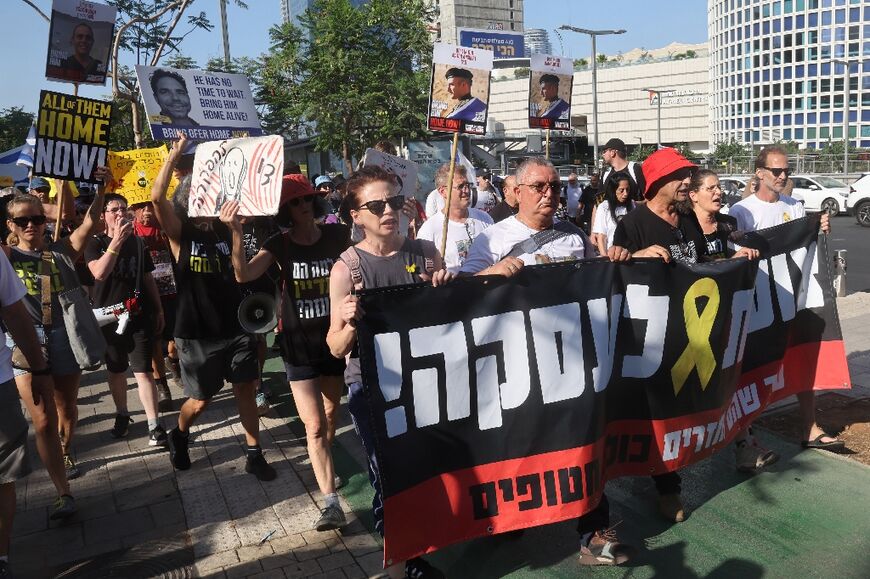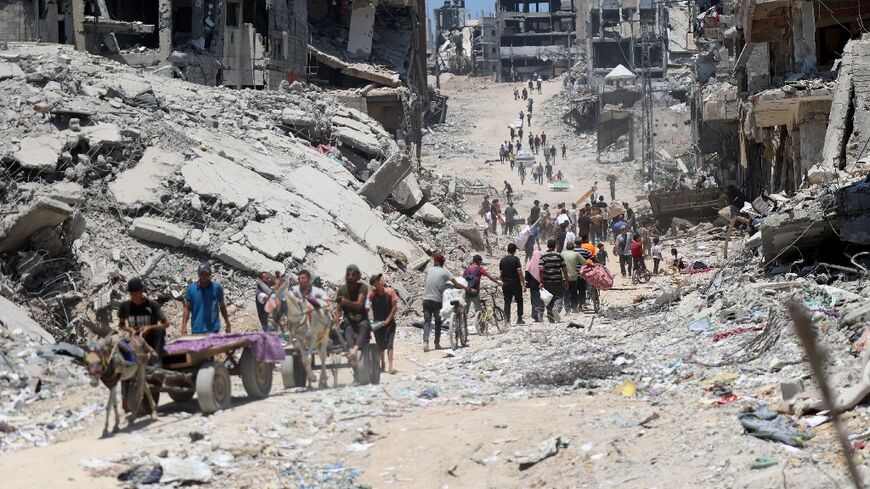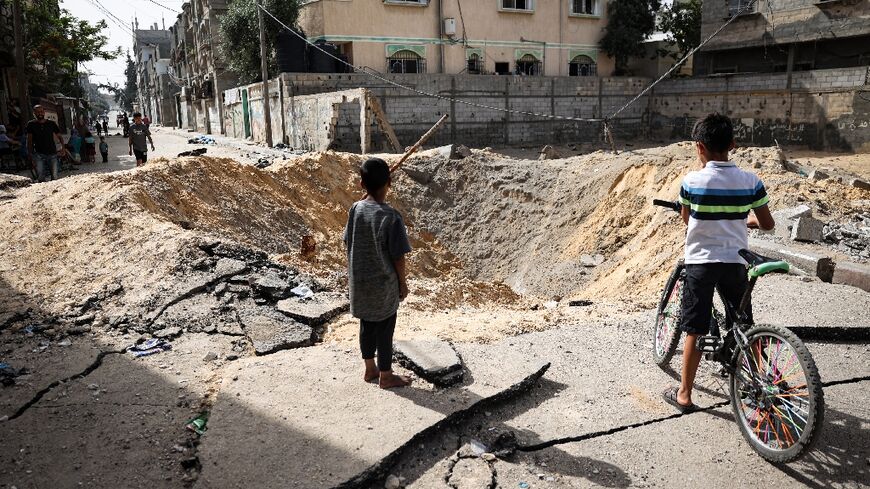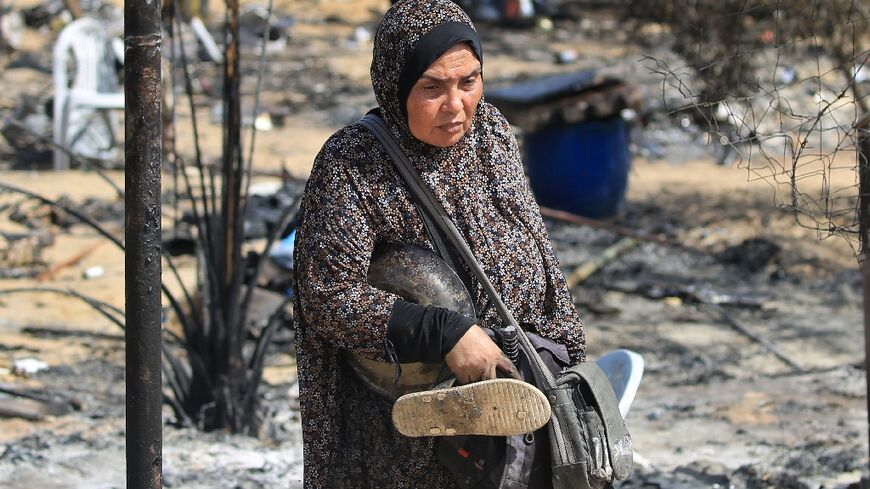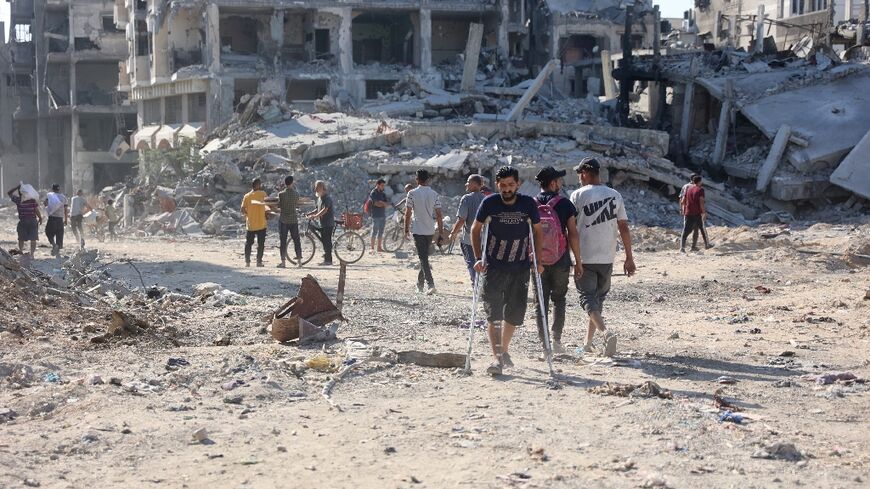60 bodies found after Israeli operation in Gaza City
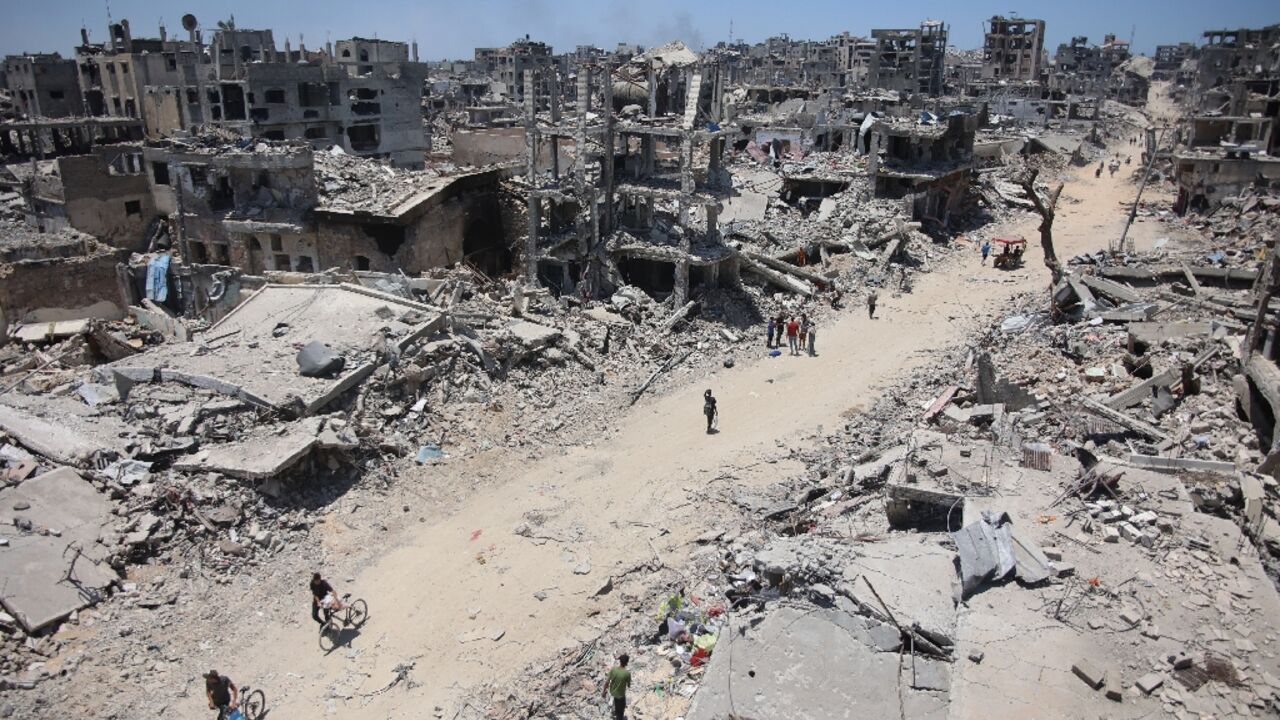
Around 60 bodies were found under the rubble of a Gaza City neighbourhood, officials in the Hamas-run territory said Thursday, after Israel's military declared an end to its operation there.
The upsurge in fighting, bombardment and displacement in the eastern district of Shujaiya came as talks were held in mediator Qatar towards a truce and hostage release deal.
US President Joe Biden told reporters that his administration was "making progress" towards a ceasefire agreement as he called for an end to the Israel-Hamas war.
His statement came after Prime Minister Benjamin Netanyahu demanded that Israel retain control of key Gaza territory along the border with Egypt -- a condition that conflicts with Hamas's position that Israel must withdraw from all Gaza territory after a ceasefire.
Gaza's civil defence agency said around 60 bodies had been found under the rubble in Shujaiya, after some of Gaza City's heaviest combat in months.
Hamas said Israel's operation there had left "more than 300 residential units and more than 100 business destroyed".
Mohammed Nairi, a Shujaiya resident, said he and others returning to the neighbourhood had seen "immense destruction that defies description. All the houses were demolished."
Israel's military said on Wednesday it had completed its mission in Shujaiya after two weeks, but bombardments and fighting continued to shake Gaza City.
Witnesses said tanks and troops had moved on to other parts of the city.
An AFP correspondent reported air strikes on the Sabra neighbourhood while militants engaged in heavy clashes with Israeli forces in Tel al-Hawa.
Hamas reported 45 air strikes in the Gaza City area, as well as in Gaza's southernmost city of Rafah, where Netanyahu had said the intense phase of the war was nearing its conclusion.
- 'Difficult, complex issues' -
Netanyahu's office confirmed that its negotiating team, led by Mossad intelligence chief David Barnea, had returned to Israel following talks with mediators in Doha on Thursday.
Speaking after the team's return, Netanyahu said Israel needed control of the Palestinian side of Gaza's border with Egypt to stop weapons reaching Hamas.
He added that Israel must also be allowed to keep on fighting until its war aims of destroying Hamas and bringing home all hostages are achieved.
In Washington, Biden acknowledged "difficult, complex issues" remain between Israel and Hamas, but that progress was being made in reaching a ceasefire deal.
"There's a lot of things in retrospect I wish I had been able to convince the Israelis to do, but the bottom line is we have a chance now. It's time to end this war," he said after a NATO summit.
The Washington Post had reported on Wednesday that both Israel and Hamas had "signalled their acceptance of an 'interim governance' plan" in which neither would rule the territory and a US-trained force of Palestinian Authority supporters would provide security.
The Pentagon has also announced it will soon permanently end its problem-plagued effort to deliver aid to Gaza by sea from Cyprus using a temporary pier that had been repeatedly damaged by weather conditions.
The UN's health agency meanwhile said that only five trucks carrying medical supplies were allowed into Gaza last week.
"More than 34 of our trucks are waiting at the Al Arish crossing, and 850 pallets of medical supplies are awaiting collection. A further 40 trucks are waiting at Ismailiya in Egypt," WHO chief Tedros Adhanom Ghebreyesus said Friday on social media platform X.
Hamas's October 7 attack on southern Israel that sparked the war resulted in the deaths of 1,195 people, mostly civilians, according to an AFP tally based on Israeli figures.
The militants also seized hostages, 116 of whom remain in Gaza, including 42 the military says are dead.
Israel responded with a military offensive that has killed at least 38,345 people in Gaza, also mostly civilians, according to figures from Gaza's health ministry.
- 'Dangerous combat zone' -
The Israeli army dropped leaflets on Wednesday warning "everyone in Gaza City" that it would "remain a dangerous combat zone".
The leaflets urged residents to flee, and set out designated escape routes from the area where the UN humanitarian office said up to 350,000 people had been sheltering.
The UN said the latest evacuations "will only fuel mass suffering for Palestinian families, many of whom have been displaced many times", and who face "critical levels of need".
Hamas official Hossam Badran told AFP that Israel was "hoping that the resistance will relinquish its legitimate demands" in truce negotiations.
But "the continuation of massacres compels us to adhere to our demands", he said.
Israel's military said operations were also continuing in the Rafah area where "dozens" of militants were killed over the past day.
The military said it responded with air and ground strikes after five rockets were fired from the area towards Israel on Thursday.
The military separately acknowledged Thursday it had "failed" to protect Kibbutz Beeri, where more than 100 people died during Hamas's October 7 attacks.
A summary of the inquiry, made public after being presented to kibbutz residents, said there had been a "lack of coordination" in the military response.
burs-dhw/ser


